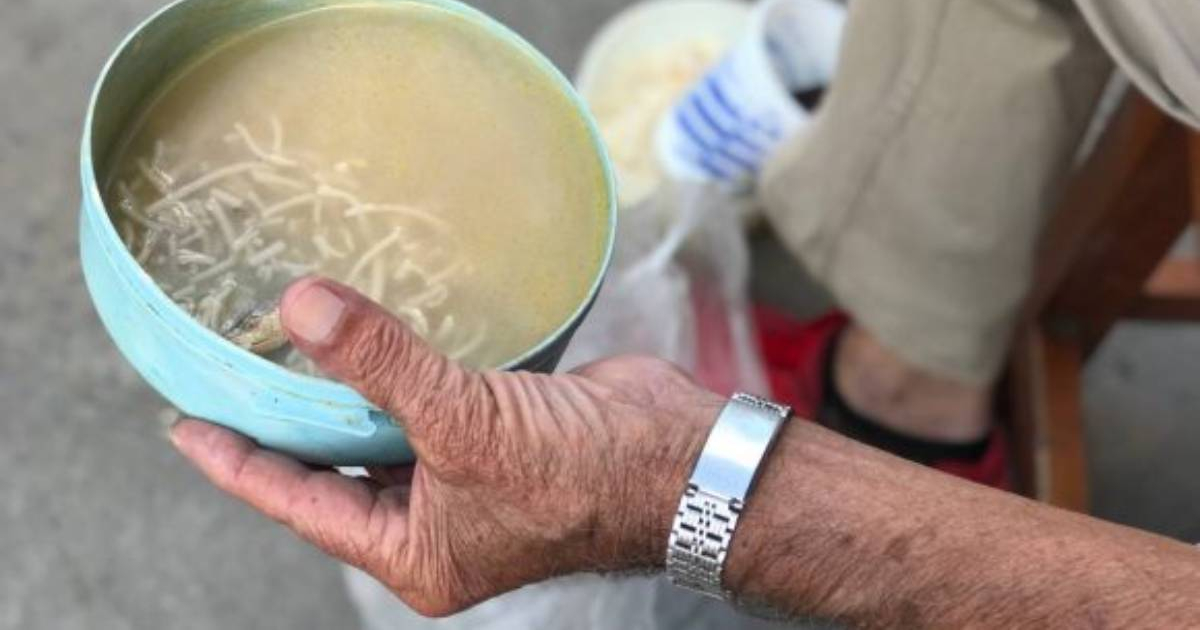
Related videos:
An elderly Cuban confessed that after working hard his entire life in Cuba, his retirement is not enough to make ends meet due to the economic crisis and inflation in the country.
"I never lived off stories. At the time, I did what I had to do. Now I feel underpaid, without proper compensation. I suffer from anemia and can’t go outside due to the risk of falling. My situation needs to be addressed. I want to be measured by the same standards as everyone else, but the issue is that those standards have fallen short," he stated to the state-run media outlet 5 de Septiembre.
The elderly Cuban wondered, “What is 1,570 pesos worth today?” amid a severe economic, political, and social crisis plaguing the country, which has worsened since 2021 with the implementation of the Tarea Ordenamiento that led to a high inflation rate.
This 75-year-old Cuban reflected on how much he has contributed to society and how it is possible that his income is not even enough to cover his daily food expenses. He is a university graduate, a philologist, and speaks up to four languages.
"The hardest thing about this age is that one is getting closer to death, and the enjoyment of the time we have left can turn into a nightmare." She lives with her 86-year-old sister, a person with a disability, to whom she must contribute for support.
It is estimated that there are 1,600,000 retirees in Cuba. More than half of them receive the minimum pension. This money is not enough to cover the cost of medications, food, and basic necessities.
The impoverishment of Cuban society is becoming increasingly visible, and the State has acknowledged its inability to reach the areas where vulnerability is prevalent.
Another interviewee, aged 63, stated that they survive on a budget of 1,260 pesos.
"There is no way for me to get by. I've sold almost everything of value that I had. There are months when I don't know what I'm going to do. I'm without clothes, without shoes, without anything. I live off the charity of others, from what they can give me," she confessed.
In addition to the economic vulnerability faced by thousands of elderly people in Cuba, there is also the pain of loneliness. This phenomenon has intensified over the past decade and is marked by the migration crisis.
Thousands of young people are leaving the country, some even leaving their young children in the care of their grandparents. They embark on long journeys, crossing seas, rivers, and jungles to escape poverty in Cuba.
"We are talking about elderly individuals abandoned by their families, as well as by children and close relatives who are now emigrating, which makes them much more vulnerable," said Olga Lourdes Vila Pérez, a professor at the University of Cienfuegos.
There is a deep social crisis in the country that severely impacts the elderly population. Many live in a state of economic dependence. Others retire after many years of work and take on subcontracting jobs to continue earning income as long as they have the strength to do so.
The government insists that the initial calculations of the Tarea Ordenamiento included an increase in retirement benefits, but they have had to concede that, similar to the case with salaries, the amounts ended up being too low and fell short.
People who worked their entire lives for the socialist government, under the rules of the Communist Party that Miguel Díaz-Canel staunchly defends, currently have nothing in Cuba; many cannot even afford to pay for the basic necessities in full.
Filed under: